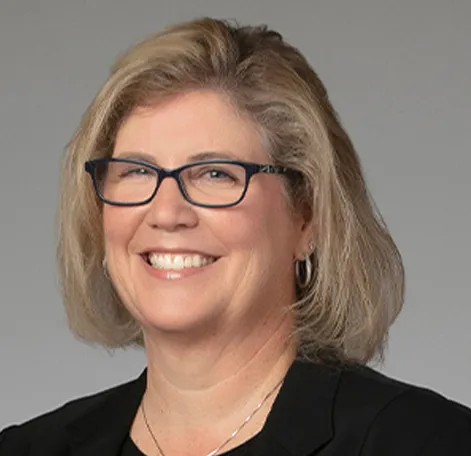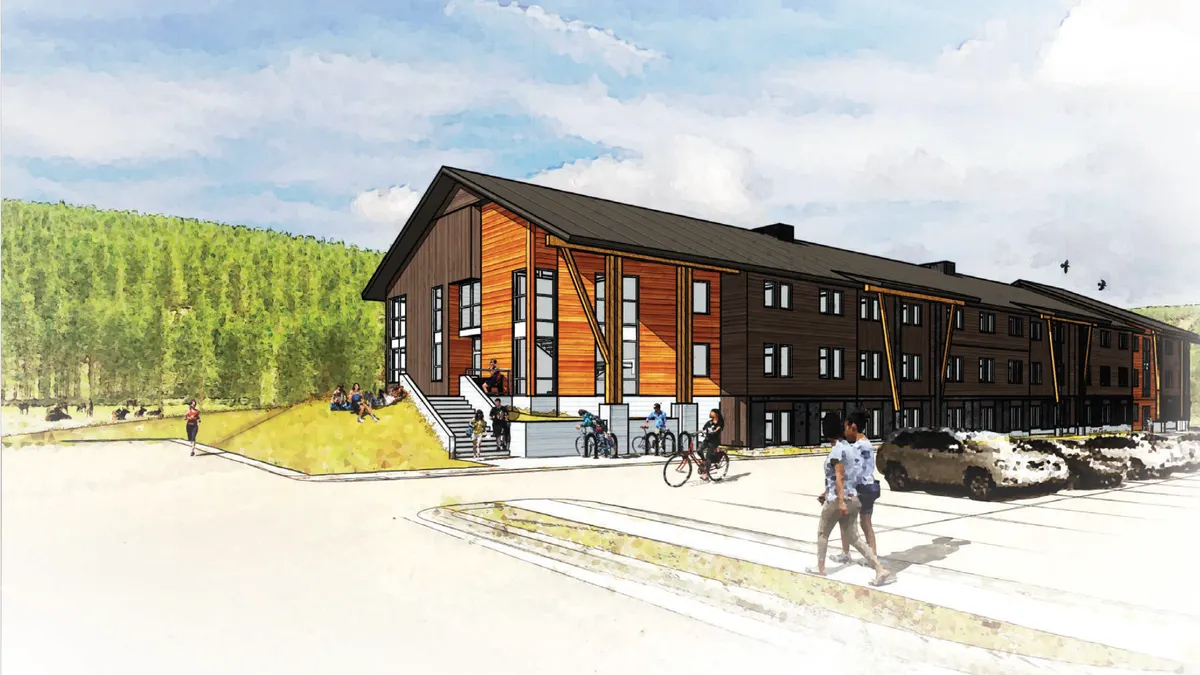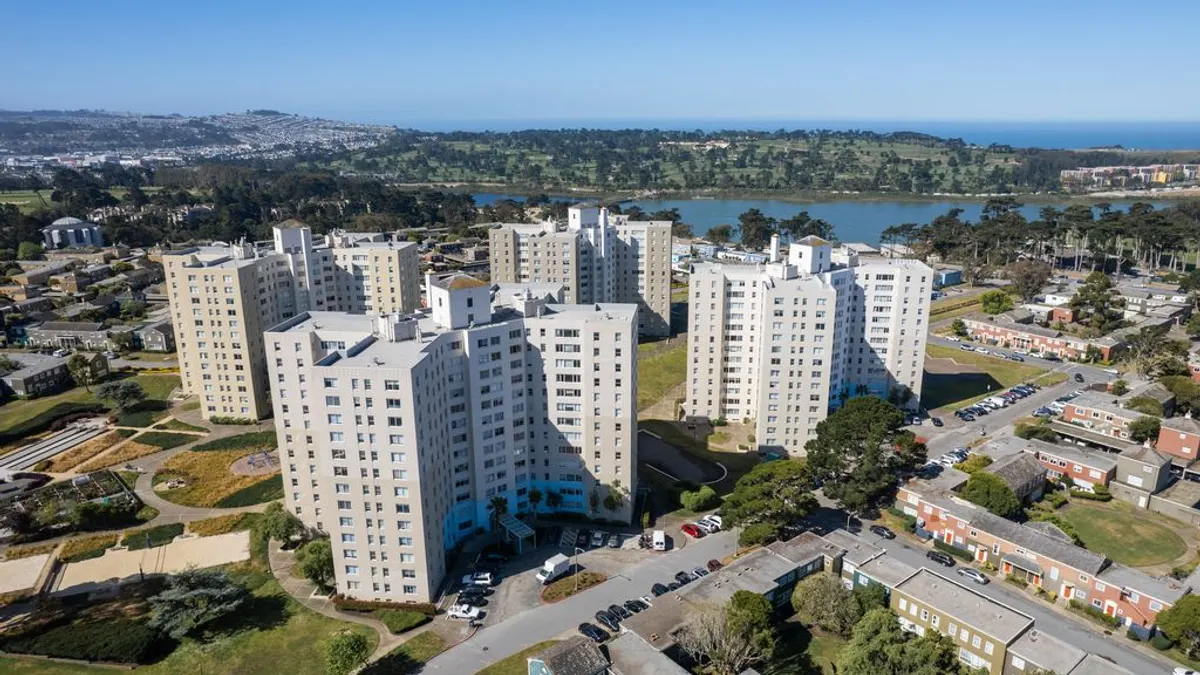Over the past year, Multifamily Dive has talked to more than 20 apartment executives to understand how the industry views centralization and how companies are adopting it. For the sixth installment, we’re looking at the balancing act between in-person and centralization services. Click here for the fifth installment.
Allyson McKay, managing director and executive vice president of management services at San Antonio-based Embrey Partners, doesn’t need to be convinced that chatbots can help property managers gain leases.
“The chatbots answer questions,” McKay said. “We can see an ongoing dialogue with the chatbot. They are able to answer prospects’ questions and then send them to somebody to set an appointment, or they can even follow up.”
But is McKay ready to turn over her leasing operation to a chatbot army? Not quite.
“The key is trying to figure out how to leverage technology with the needs of the properties to help drive net operating income without losing customer service,” McKay said.
Relying too much on chatbots risks losing the human element key to that customer experience. “A benchmark of our company is how we serve our residents and our associates,” she said.
The question that McKay is grappling with is challenging management companies around the country. Saving money and finding efficiencies is important, but operating apartments is a people business. Veering too far into automation can turn off residents and hurt retention.
Many apartment operators have found that specific tasks can be automated, but having people on site is still the key to success.
Meeting customers where they are
When asked why they’re looking to centralize processes ranging from leasing to bookkeeping to renewal management, most apartment operators point to serving the customer.
For instance, in its customer relationship management system, Houston-based REIT Camden Property Trust can now easily track interactions with residents and prospects, including calls, texts and emails, helping it fine-tune its interactions. “The whole focus on centralization was a result of us wanting to provide a better customer experience,” said Laurie Baker, chief operating officer at Camden.
Like centralization, automation is helping some managers adapt to customer demand.

The theory goes that today’s core renters, in their 20s and 30s, grew up in a connected world where communication migrated from a phone call to an email and now to a text message or an app. By adopting technology where renters can file a maintenance claim or shop for a studio apartment via a chatbot, the industry is simply meeting these customers where they are.
“We’re going as a society toward a self-serve economy,” said Yakov Belousov, executive director of operations for Alpharetta, Georgia-based property manager Pegasus Residential. “So I don’t think this is going away.”
Take self-guided tours, for instance. Not all prospects want to interact with leasing agents when they’re apartment shopping.
“You do have those that don't want to talk to us or that want to look in the middle of the night because of their job demands or whatever else they may be doing,” McKay said. “They don't have that time.”
Don’t push too far
Not everyone wants to go through an apartment without a leasing agent present, however.
“There are going to be people that still want to work with someone in person guiding them through,” said Cindy Clare, chief operating officer for Greensboro, North Carolina-based owner and manager Bell Partners. “So I think it's finding that balance and being able to look for efficiencies and ways to enhance the customer experience.”
Even operators who are open to centralizing tasks admit that people need to be on site in many situations, specifically with new construction.

“We just built a $150 million asset, and we want leadership on that property,” Baker said. “Think about the exposure. You don't want to walk into a beautiful 450-unit community that you've just spent that kind of money on, and there's no leadership on site. That's a scary thing for us.”
Embrey’s McKay also points to lease-ups and customer service in luxury buildings as places where the human touch is essential.
“You need boots on the ground,” she said. “There's so much going on with the timing of people coming in, the availability of units and the expectation at the price point. How much service can you pull back and still expect to receive the high dollar rent?”
The human touch
If you put REITs like Denver-based UDR at one end of the spectrum as one of the most aggressive adopters of centralization with its stafferless properties, Diane Batayeh, CEO of Southfield, Michigan-based apartment manager Village Green, might be near the other end.
Batayeh can’t imagine a scenario where an apartment community — whether a lease-up or many years old — doesn’t have a dedicated manager. “Your property managers are essentially the CEO of that property,” she said. “They have the insight into a property’s unique characteristics, history, challenges and upside potential, and are trained to understand the investment goals of the owner.”

Batayeh isn’t opposed to adopting technology, but she doesn’t think functions that require human contact can be centralized.
“Take payables, for example,” Batayeh said. “You can streamline the process and have an automated system, but it requires a human being's review and approval to validate an expense prior to processing payment. Otherwise, it's subject to potential errors or makes it difficult to proactively manage costs.”
While many firms are pushing their renewal to centralized service, Batayeh thinks personal, on-site relationships are a key to retention.
“The centralization of lease renewals may work in situations that don’t require human interaction, such as when a resident is renewing based only on their desire or ability to accept the proposed rent increase,” Batayeh said. “There are many instances, however, when a resident is undecided and needs convincing. Someone at the corporate office of a management company who doesn't have a relationship with or know the sensitivities of that resident won’t be as effective at convincing that person of the value proposition of renewing.”
Seeking community
Apartment operators spend a lot of money trying to boost retention by building a sense of community and establishing bonds between residents. Having staffers on site is central to that mission, many managers say.
“These are people's homes, and that's very personal,” said Woody Stone, president of Dallas-based operator Cushman & Wakefield Multifamily Asset Services. “I think walking up to a kiosk or not having a relationship with people managing your home is not for most. We're betting that people want relationships and community.”
If apartment operators decide to rely too much on technology without remembering the human component, resident satisfaction and retention can suffer.
“The residents want to interact,” McKay said. “They want to know who’s in the office. The teams are the ones that are putting on the community events that we want the residents to come to. We want to connect the residents with the rest of the resident profile so that they stay longer.”
Click here to sign up to receive multifamily and apartment news like this article in your inbox every weekday.

















